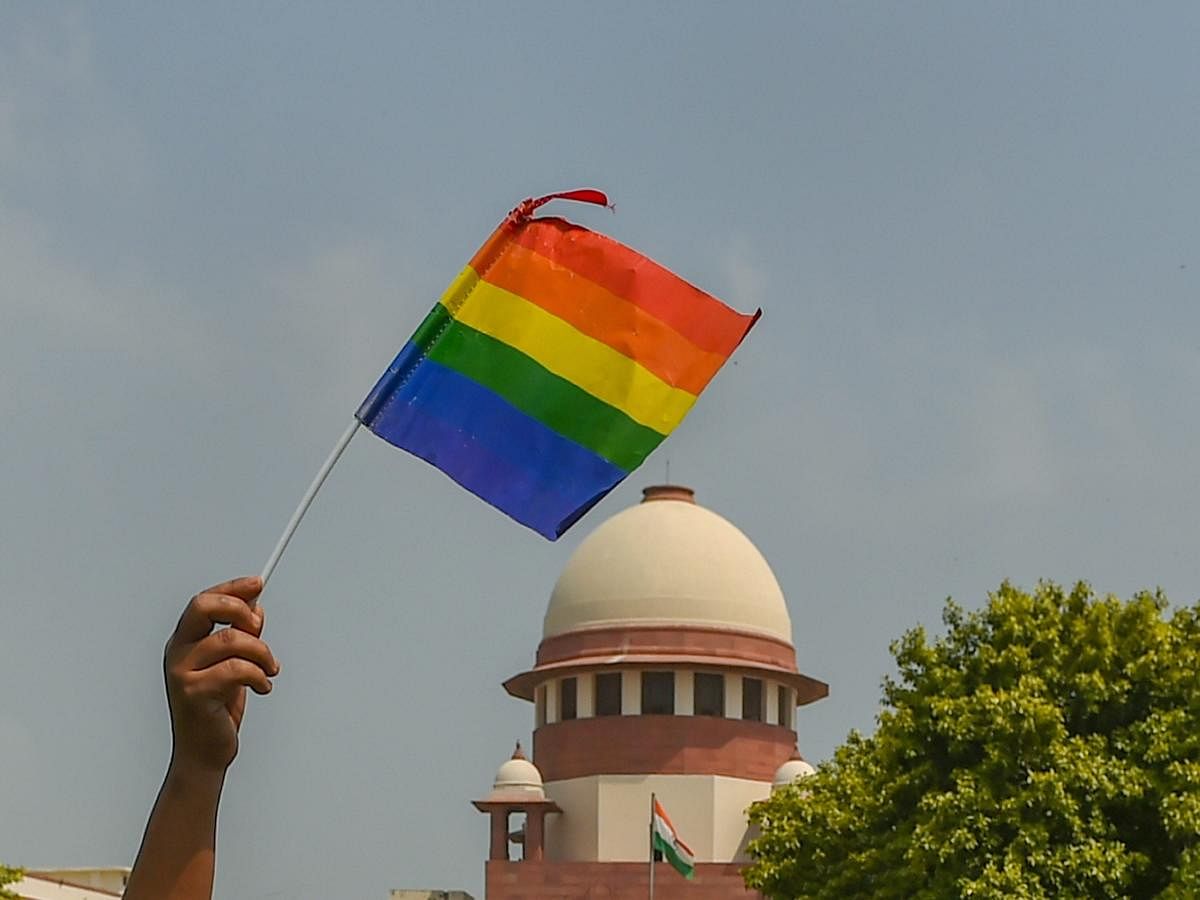
The Supreme Court on Thursday struck down Section 377 of the Indian Penal Code (IPC) so far as it criminalised and penalised same-sex acts between two consenting adults.
A five-judge Constitution bench presided over by Chief Justice of India (CJI) Justice Dipak Misra said criminalising homosexuality was "irrational and indefensible."

Understand the issue: The fight against Section 377
"Constitutional morality cannot be equated to a majoritarian view. The LGBT community possesses same rights as any citizens of the country," the CJI said in his judgement authored on behalf of himself and Justice A M Khanwilkar.
He further said any consensual sex between two adults cannot be regarded as unconstitutional.
"Section 377 of the IPC is liable to be struck down for being violative of Article 14 of the Constitution. Any discrimination on the basis of sexual orientation is violative of the fundamental right to speech and expression," the top court said.
He relied upon the doctrine of progressive realisation of rights to give recognition to a same-sex relationship. "An individual has sovereignty over his or her own body and must be allowed to realise his full rights," it said.
Four concurring judgements were pronounced by the Supreme Court on a batch of writ petitions filed by eminent citizens and some IIT students challenging the validity of Section 377 of the IPC. Chief Justice Mishra wrote for himself and Justice Khanwilkar. Each of the other justices authored their own judgements.
"Section 377 of the IPC is liable to be struck down for being violative of Art 14 of Constitution. Any discrimination on the basis of sexual orientation is violative of fundamental right to speech and expression," the apex court said.
In his verdict, Justice R F Nariman said homosexuals have an equal right to live with dignity and that they are entitled to equal protection of the law. He directed the Centre to give wide publicity to this judgement to remove the stigma while concurring with the CJI's judgement.
In his judgement, Justice D Y Chandrachud said the Constitution protected the fluidity of sexual expression. "Human sexuality can't be explained in binary. Citizens can't be pushed to absurdity due to colonial law," he said.
Justice Chandrachud declared the provision as unconstitutional so far as it penalised same-sex consensual relationships. "The LGBTs are entitled to the full range of constitutional rights and equal protection of the law," he said.
Justice Indu Malhotra, in her judgement, declared the provision, so far as it penalises consensual sexual acts between two consenting adults, as violative of Article 14, 19 and 21 of the Constitution. She says history owes an apology to the LGBT community for the wrongs committed with them.
The five-judge bench leaned extensively on international jurisprudence, including laws and judgements from countries like the United States, United Kingdom, South Africa, Australia, Canada and Trinidad and Tobago.
Full Text of the Judgement:
You can download the judgement from the Supreme Court of India's website here
